In the Heights is a musical that reached Broadway in 2008. With music and lyrics by Lin-Manuel Miranda, the show has won several awards, including a Tony Award for Best Musical. The score has a large Latin influence as the show follows the Latin American residents of a barrio in Washington Heights. The musical has received its share of praise, but for each of its 23 songs, there is a reason to take issue with this original musical.
1. In the Heights
The opening number sets the tone for the way that rap and hip-hop will be intertwined with Latin musical influences to create the unique feel of this show. The first song of the musical also manages to introduce a majority of the main characters. Right off the bat, this show's exposition is established almost too skillfully.
2. Breathe
This song serves as introduction for the character of Nina Rosario, who is returning from her first year at Stanford. As she thinks back on they days when she lived in the barrio, we learn that Nina has worked hard all her life to get to college and that she now holds the very relatable fear of failing the loved ones she only wants to make proud. Honestly, how dare such a well-written character (a woman of color, no less) exist in this musical?
3. Benny's Dispatch
It's almost disgraceful the way In the Heights makes rapping traffic updates an endearing character trait of Benny's. In fact, the rap Benny does after taking over the dispatch is so catchy that it forces even the most unwilling of listeners to try to rap along. Lastly, it introduces the idea of a little romance between the lovable, rapping taxi driver and his boss's overachieving daughter; I cannot be alone when I say that this song exceeds the limit of cute yet unexpected things that should be allowed to happen in a song that is only two minutes in length.
4. It Won't Be Long Now
An upbeat song introducing a young woman and her ambitions? You'd think it was too good to be true, but here it is. This song reveals Vanessa's intense desire to escape to a better life and makes anyone who hears it want to get up and dance. On top of the uplifting message and hip-shaking beat, there's also a verse that addresses the shameful phenomenon of catcalling. Yet again, In the Heights yields a song that can be classified as too perfect.
5. Inútil
In the fifth song in the show, Kevin Rosario, Nina's father, sings about his childhood in comparison to Nina's, drawing contrast between the way his father discouraged him from immigrating to America to do bigger things and the way he tried to encourage Nina to change the world. This heartfelt song addresses the challenges that immigrants and their children often face while establishing the fact that Kevin always wanted more for his family; if he can't give them everything they need, all of his hard work will have been useless. This song captures this version of the immigrant experience more flawlessly than should be permitted for a song by a more secondary character. Once again, a song from this musical's score proves to be too good.
6. No Me Diga
This song has a pronounced Latin flare and manages to combine comedy and character development almost too well. This song promises to leave listeners in stitches while showcasing Vanessa's feelings for Usnavi and Nina's feelings for Benny. It's also a prime example of the way Nina fears letting her neighborhood down as Daniela, Carla, and Vanessa cheer Nina on in anticipation of her graduating and she tell them that she dropped out of Stanford. Lastly, the harmonies are far too beautiful for a song as light and fun as this one. Just. Too. Flawless.
7. 96,000
Wow. Not only is the rapping in this song clever and generally incredible, but this song also includes some of the prettiest lines in the musical (or any musical, for that matter). "For real, though" is possibly the most beautifully sung line in musical theater history. For real. And on top of that, all the main characters in the song get their own little verse to outline what they would do with the $96,000 lottery jackpot. A perfectly witty and simultaneously sweet and inspiring rap song didn't exist before this gem, and unfortunately for all lovers of musical theater, it's next to impossible to stop listening to this number on a loop.
8. Paciencia y Fe
In this musical number, we learn about Abuela Claudia's experience back in Cuba as well as the difficulties she and her mother faced after immigrating to the United States. Yet again, this musical flawlessly captures and showcases one version of the immigrant experience and the wonderful and trying nature of making a home in a foreign land. In the end, there's one last ray of hope for Abuela as we discover that she's the winner of the $96,000 and she can finally have the life she and her mother once dreamed of. Of course, this song's downfall is that it is potentially too representative of the immigrant experience and is also on the verge of being sweet enough to make listeners bawl.
9. When You're Home
If you thought the romance couldn't get sweeter, you were dead wrong. In this song, Nina and Benny reminisce about childhood in the barrio. Nina recalls life being easier back when they were children, but Benny claims that, when Nina's home, everything is better. And when she confides in him about her troubles at Stanford, he comforts her by saying that he knows she'll find her way and change the world. This song isn't even really a love song, but it stirs up such strong emotions. So rude of the composers and performers to put butterflies in listeners' stomachs like that.
10. Piragua
Even though this song has next to nothing to do with the main characters and plot, it is still one of the catchiest Broadway tunes out there. After this song, the Piragua guy becomes the most treasured background character in the musical. An upbeat musical number that shows the daily life of a hardworking barrio resident the spotlight isn't always on? This is yet another sign that this musical was thought out nearly too well.
11. The Club
This song was made to accompany an epic dance dumber and illustrate the flaws that exist in the main couples' relationships. On his first date with Vanessa, Usnavi proves himself too nervous and awkward to enjoy himself and Vanessa, the star of the club, ends up dancing with everyone except her date. When Nina arrives, she finds a newly laid-off Benny taking shots. When she tries to apologize, though, he won't hear it. Curse this song for making us want to dance and mourn the shows' two central romantic relationships at once; so many conflicting emotions!
12. Blackout
In this brilliant number, verses (in both Spanish and English) overlap to highlight the confusion the characters feel when the power goes out in the barrio. On top of the musical genius, the lighting and choreography for this number are truly masterful. Graffiti Pete and Sonny set off fireworks in an attempt to scare the looters away from Usnavi's bodega. While Usnavi goes off to find Abuela Claudia and discovers she won the lottery, Vanessa is hurt by the fact that Usnavi left her alone in the midst of a blackout. Throughout the song, Benny and Nina seek each other out frantically; despite Nina's claim that she doesn't need Benny's help to get home, the song ends with the couple running to center stage and sharing a climactic kiss under the fireworks. Clearly, the end to Act I, like all of the other songs thus far, is executed far too perfectly.
13. Sunrise
Act II begins with Nina and Benny standing together on a fire escape at sunrise. Benny, a non-Spanish speaker, is getting language lessons from Nina that evolve into a discussion about the future of their relationship. While the couple is overjoyed that they are finally together, Nina's parents will likely have something to say about the union. Benny pleads with Nina, saying he will need her help when it comes to her father. In response, Nina promises that nothing anyone has to say will affect their relationship if Benny stays with her beyond the sunrise. The overwhelmingly sweet nature of this song and its gorgeous harmonies contribute to its most heinous quality: it never fails to make listeners weep.
14. Hundreds of Stories
After celebrating surviving the blackout and keeping the lottery winnings safe, Usnavi and Abuela Claudia plan to use the money to travel to the Dominican Republic, Usnavi's home, and live lives filled with luxury and entertaining stories. We get a little bit of background about Usnavi's late parents, including the fact that Usnavi was named after a passing U.S. Navy ship when his parents arrived in America. The origin of Usnavi's name is almost too hilarious, and Abuela Claudia singing, "No pare! Sigue, sigue!" is adorable beyond belief; clearly these aspects of the song are drawbacks, as such a charming, lighthearted song makes it difficult to be upset about anything.
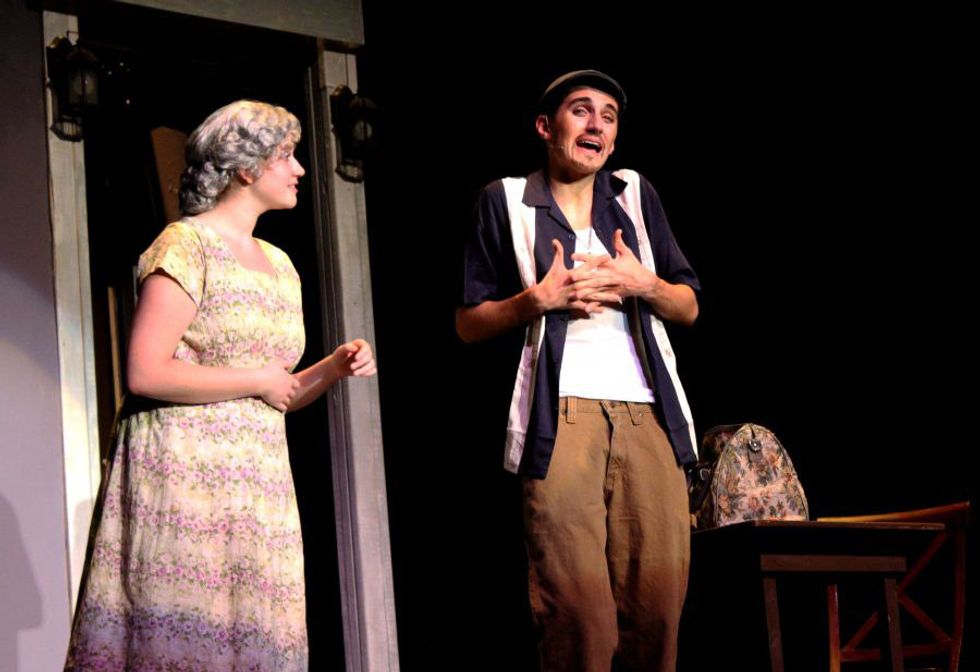
15. Enough
After discovering that Nina stayed out all night during the blackout, the friction between the Rosario's reaches a new height, prompting Camila to speak up and stop the fighting. She calls her husband out for selling the dispatch (essentially firing Benny) without talking to her about it first. Additionally, she chastises Nina for worrying her father by staying out and for dropping out of school without telling her family. Camila lays down the law while also establishing the significance of family, making this song a realistic, heartfelt, and yet again, too perfect.
16. Carnaval Del Barrio
This lively song is a national pride anthem, incorporating Spanish verses and Latin American flags. Listeners have no choice but to get on their feet and sway along to the trumpets and maracas. In this number, the entire barrio has one last party before the neighborhood is, essentially, gone. The high-spirited nature of this song will move listeners without fail, especially because of the way the characters face the closure of their neighborhood with hope and celebration rather than with sadness and tears. The existence of such a brilliant, beautiful, and uplifting song should be encouraging; however, "Carnaval Del Barrio" will remain stuck in listeners' heads for the rest of eternity.
17. Atención
In under one minute, this song manages to knock the wind out of listeners and rip out their hearts all at once. Kevin uses the dispatch one last time to announce that Abuela Claudia passed away at noon. To portray such a pure and wonderful character as Abuela Claudia, have her dream for a better life finally come true when she wins the lottery, and then kill her off (though she did die peacefully) is perhaps one of the cruelest moves in Broadway history.
18. Alabanza
In this song, the characters mourn Abuela, remembering the things she appreciated that no one else noticed and the way she would say, "Alabanza," which meant to raise something to God's face and sing its praise. The barrio proceeds to sing, "Alabanza, Doña Claudia," meaning they are singing praise to her and raising her up to God. This song is also the first group number that Nina is in; while the fact that Nina was placed atop a pedestal left her isolated before, the entire neighborhood comes together in this song for the sake of Abuela Claudia. Listeners will not escape without shedding tears.
19. Everything I Know
Nina sifts through all of Abuela Claudia's papers and photos, finding baby pictures of Usnavi, pictures of Abuela from Cuba, and even the program from Nina's graduation. From going through Abuela's boxes and folders, Nina discovers that Abuela kept and cherished every scrap of paper they gave to her; she kept all of them close to her in that way. At the end of the number, Nina vows to make Abuela Claudia proud of everything she knows, which, as we learn later, means that she has decided to return to Stanford. Yet again, this musical is too precious and too sob-worthy.
20. Piragua -- Reprise
This may be the only reprise in a Broadway musical that doesn't leave listeners on the ground in tears. In fact, we learn in this number that the Piragua guy is having better business than ever because Mr. Softee, his competitor, was put out of commission by the blackout. No competition means that the price for Piragua goes way up (and so does the piraguero's payoff). This ditty gives a happy ending to this little side story and will probably make listeners' cheeks hurt from smiling so much.
21. Champagne
In this song, Vanessa interrupts Usnavi as he is packing up the bodega. She presents him with a bottle of cold champagne, a wink to the opening number when she told him he owed her some champagne. Vanessa proceeds to thank Usnavi for giving her some money so she can pay her rent, and eventually, she tries to convince him not to go back to the Dominican Republic. She suggests that he use Abuela's winnings to fix up the barrio and stay with her and Sonny. As sweet as this sentiment is, Vanessa and Usnavi leave off in an unsure place, which is sure to drive listeners crazy because they're just too cute together.
22. When the Sun Goes Down
This tune takes on a more somber feeling as Benny and Nina wonder about the future of their relationship. Though Nina promises not to forget about him when she goes back to Stanford, Benny assures Nina that whether or not they remain a couple, he is certain that she will change the world one day. Despite the uncertain place they leave things, it is clear that their romance was the most perfect one listeners could ask for; they promise to think fondly of one another, and whether or not they are involved romantically, they know that the other's future will hold great things. It's just too amazing and rare and yet it's coming to a sad, unpredictable end. We're all sobbing, to be honest.
23. Finale
Usnavi looks back affectionately on his times in the barrio as he prepares to leave for good. However, upon seeing the mural of Abuela Claudia that Graffiti Pete painted on the grate of the bodega, Usnavi changes his hind and elects to stay in the barrio and tell its residents' stories, including that of Abuela Claudia. In an amazing turnaround, Usnavi gives Graffiti Pete money to buy spraypaint and declares that he's found his island, not in the Dominican Republic, but in Manhattan; he states that he's been on his island the whole time, finally resolving his inner conflict about what it means to be Dominican despite not living in the Dominican Republic. This swift shift from Usnavi is enough to have listeners smiling or tearing up, which is no doubt a confusing emotional state to be in; even in its final number, this musical does its best to tap into every emotion possible.
In conclusion...
This musical represents the immigrant experience, gives examples of realistic familial and romantic relationships, and presents group mourning in a believable way as well. It's hard to believe that one show can capture such a wide array of emotion and still make you want to dance along. While it is totally defensible to be angry at the minds behind this musical for making you stop listening to everything else for probably two weeks, with all joking aside, this show is a total gem; never feel bad about indulging in such a brilliant work of art (and probably crying during every other song).




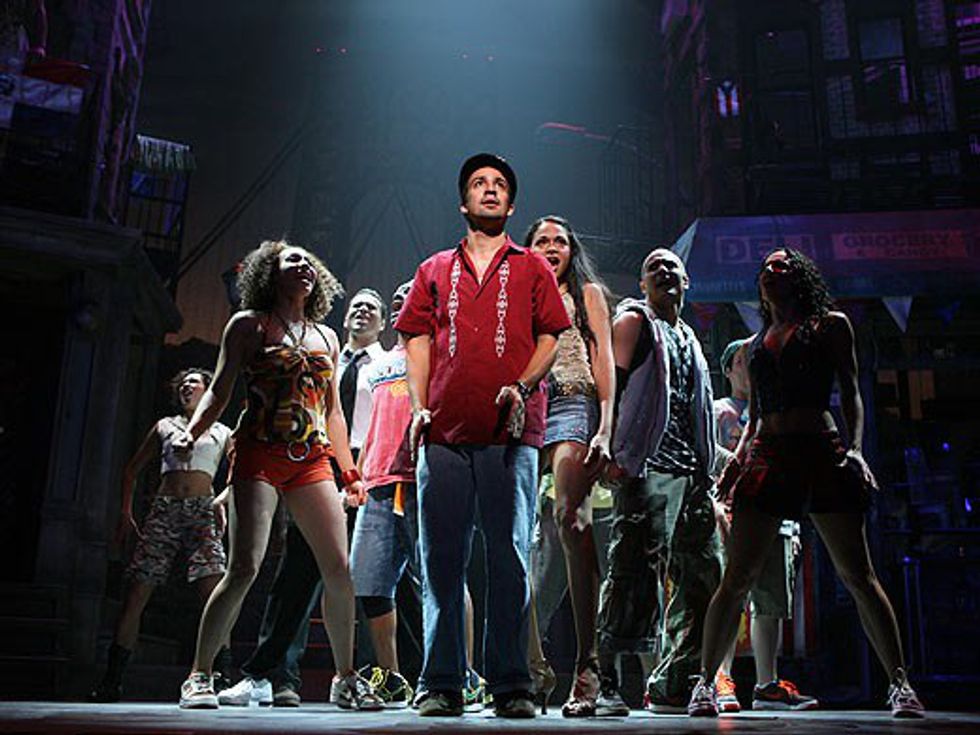
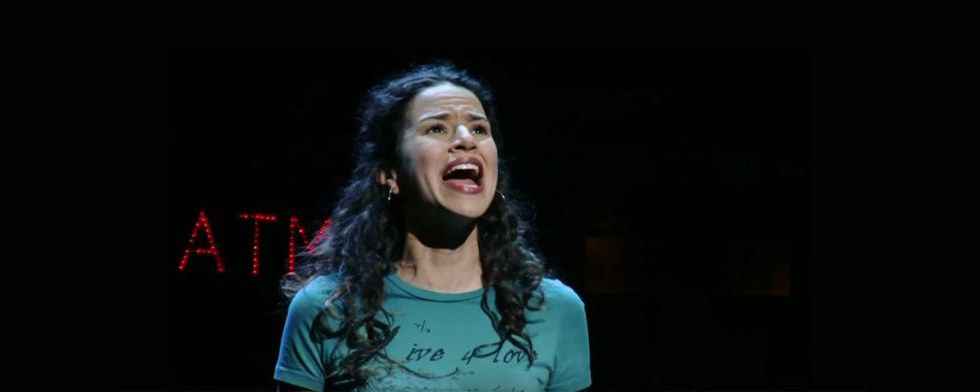
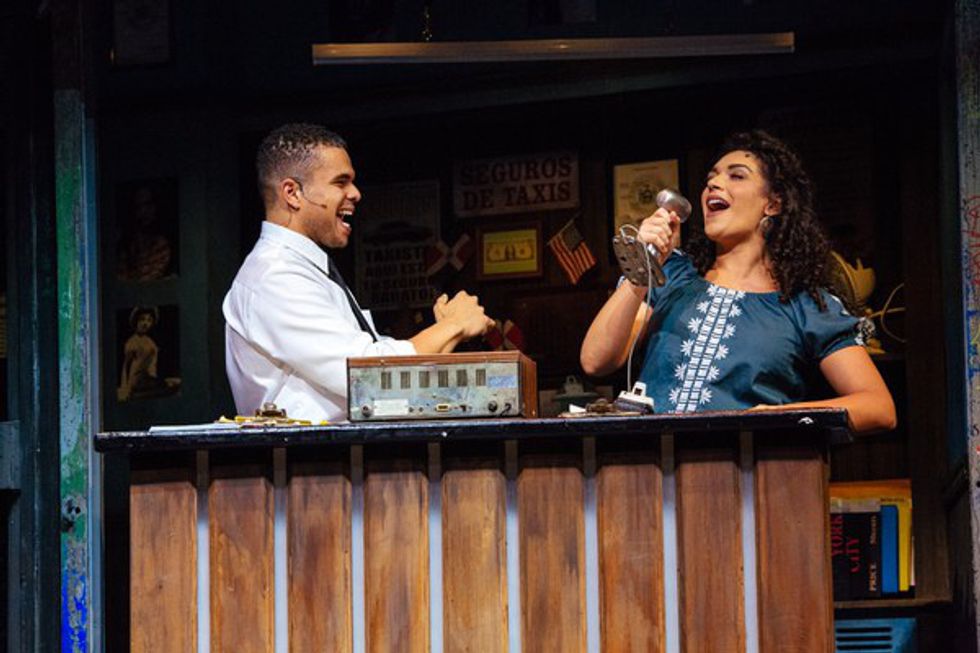
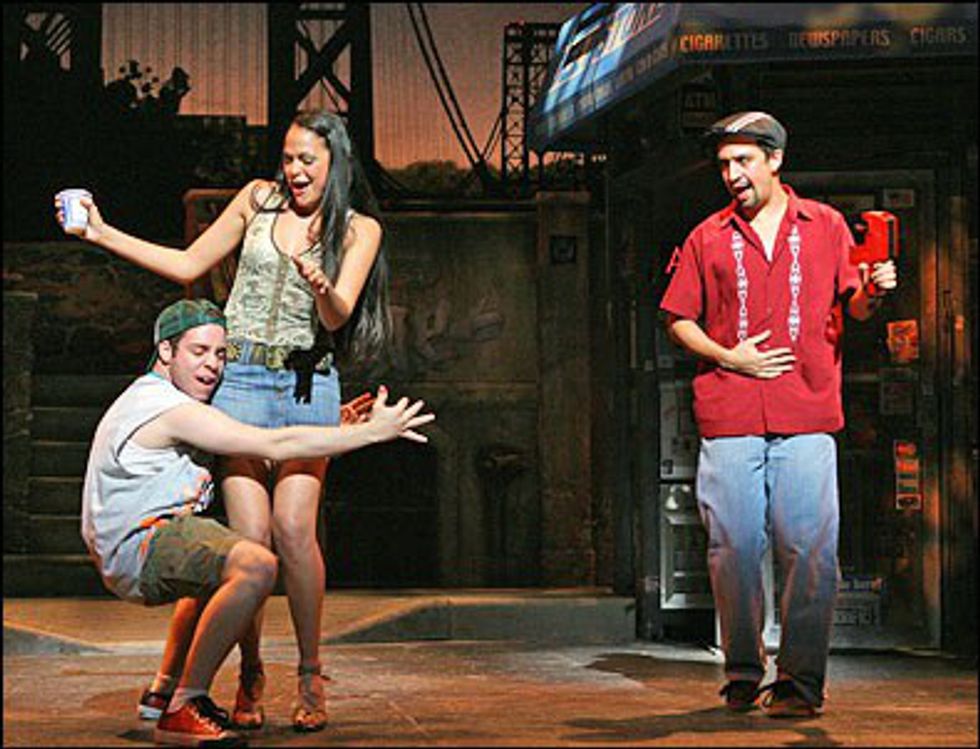

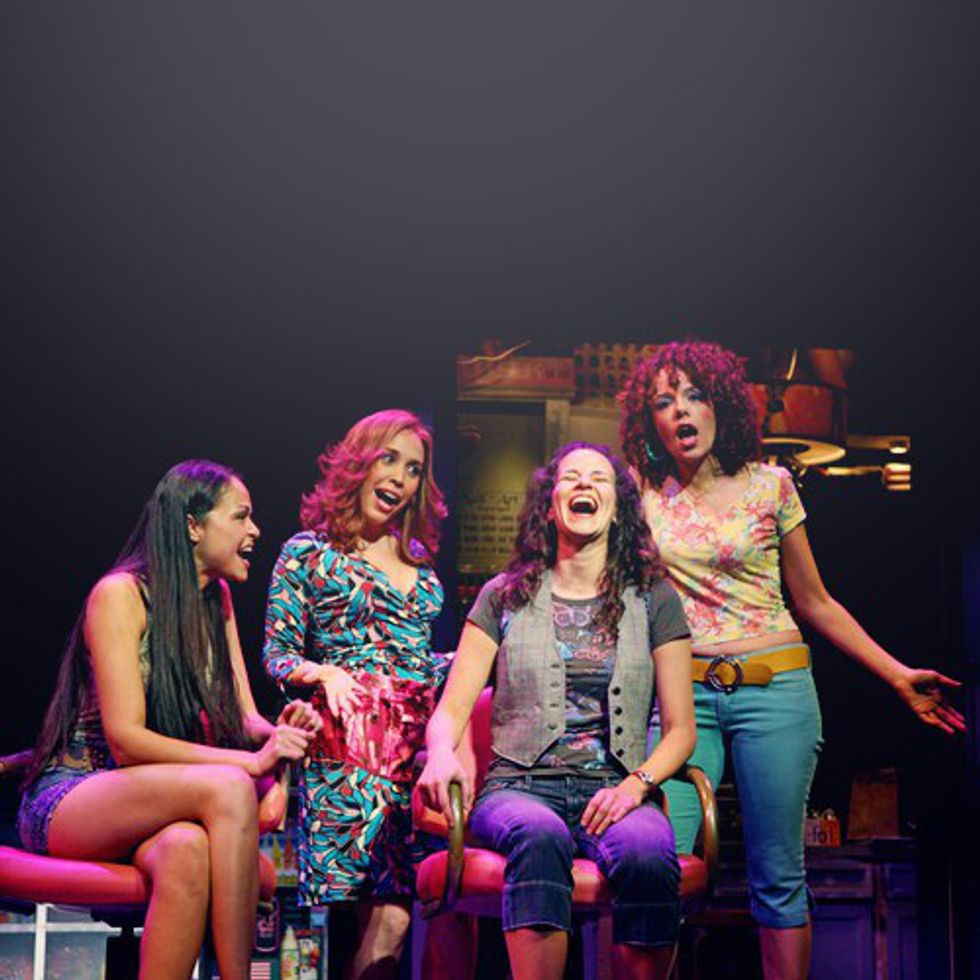
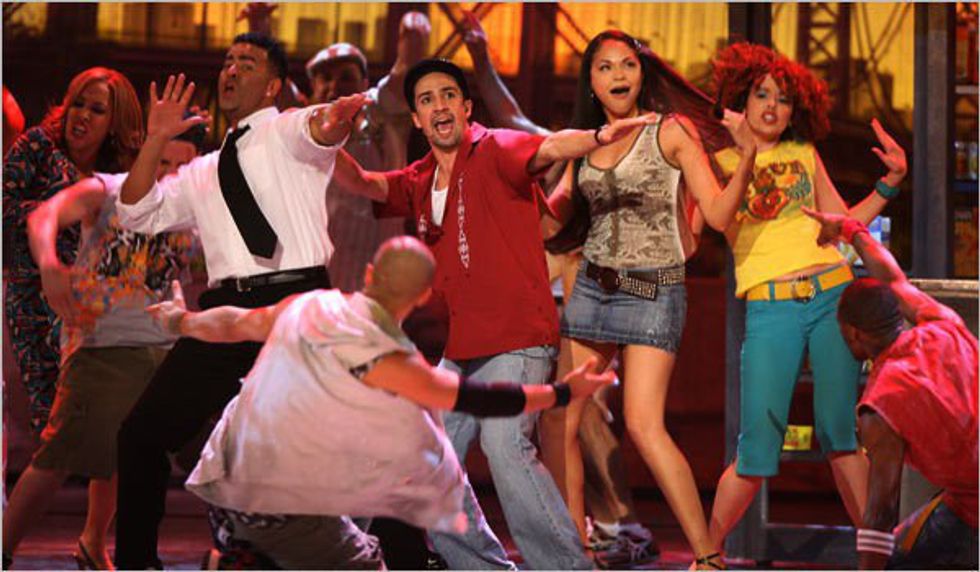
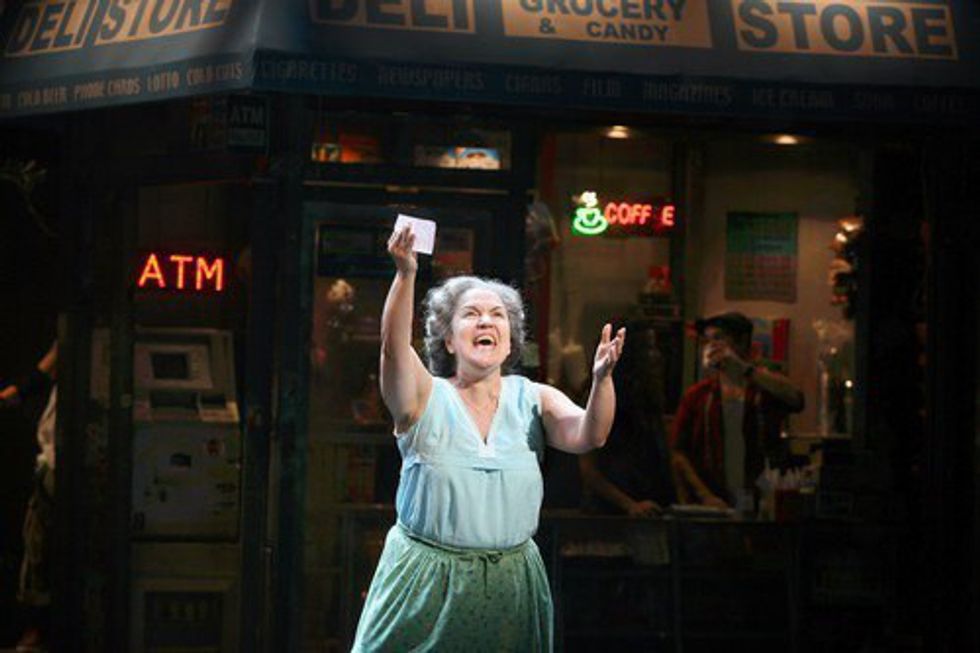
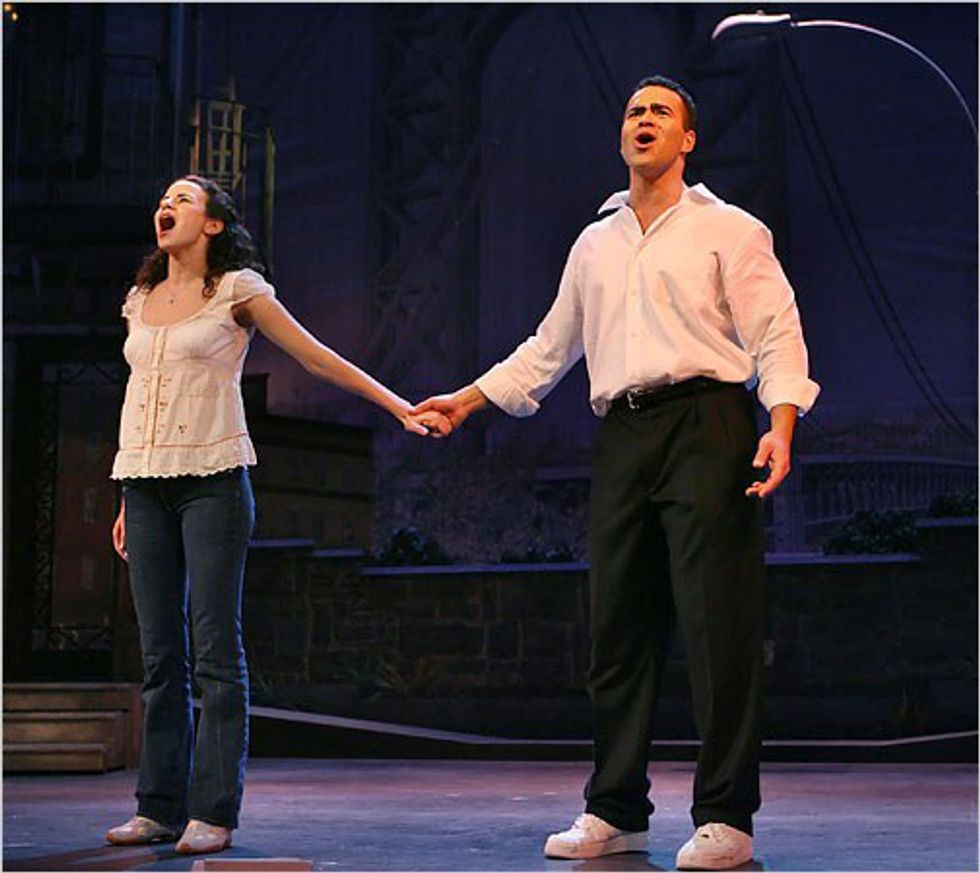
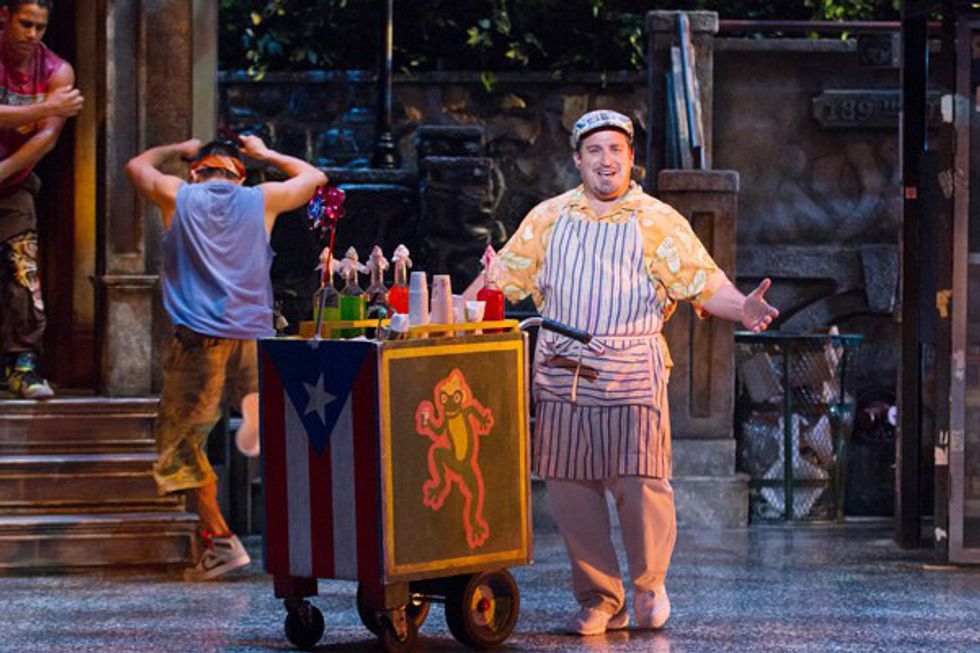
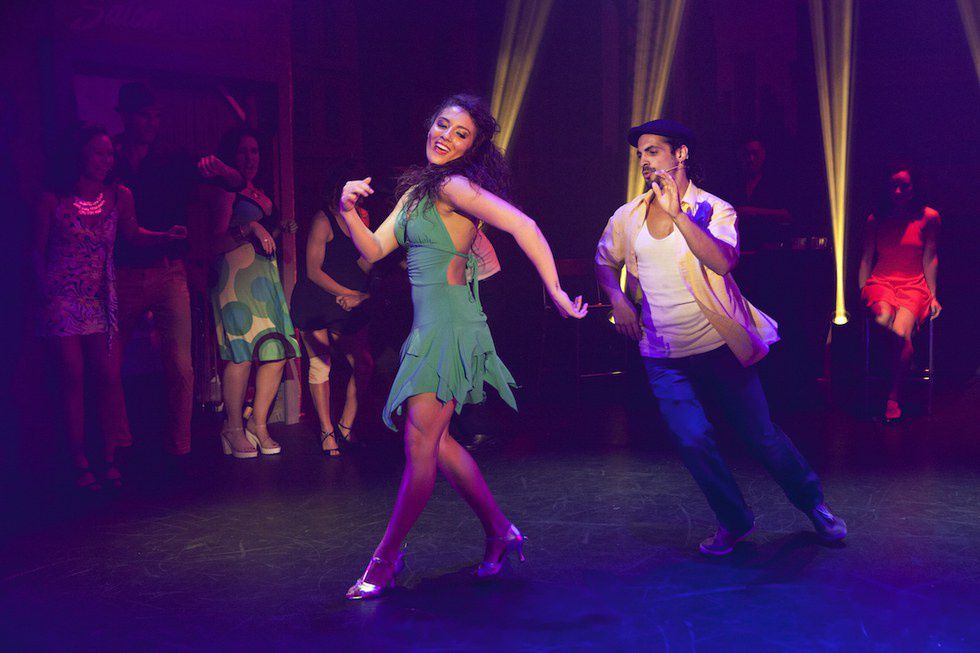

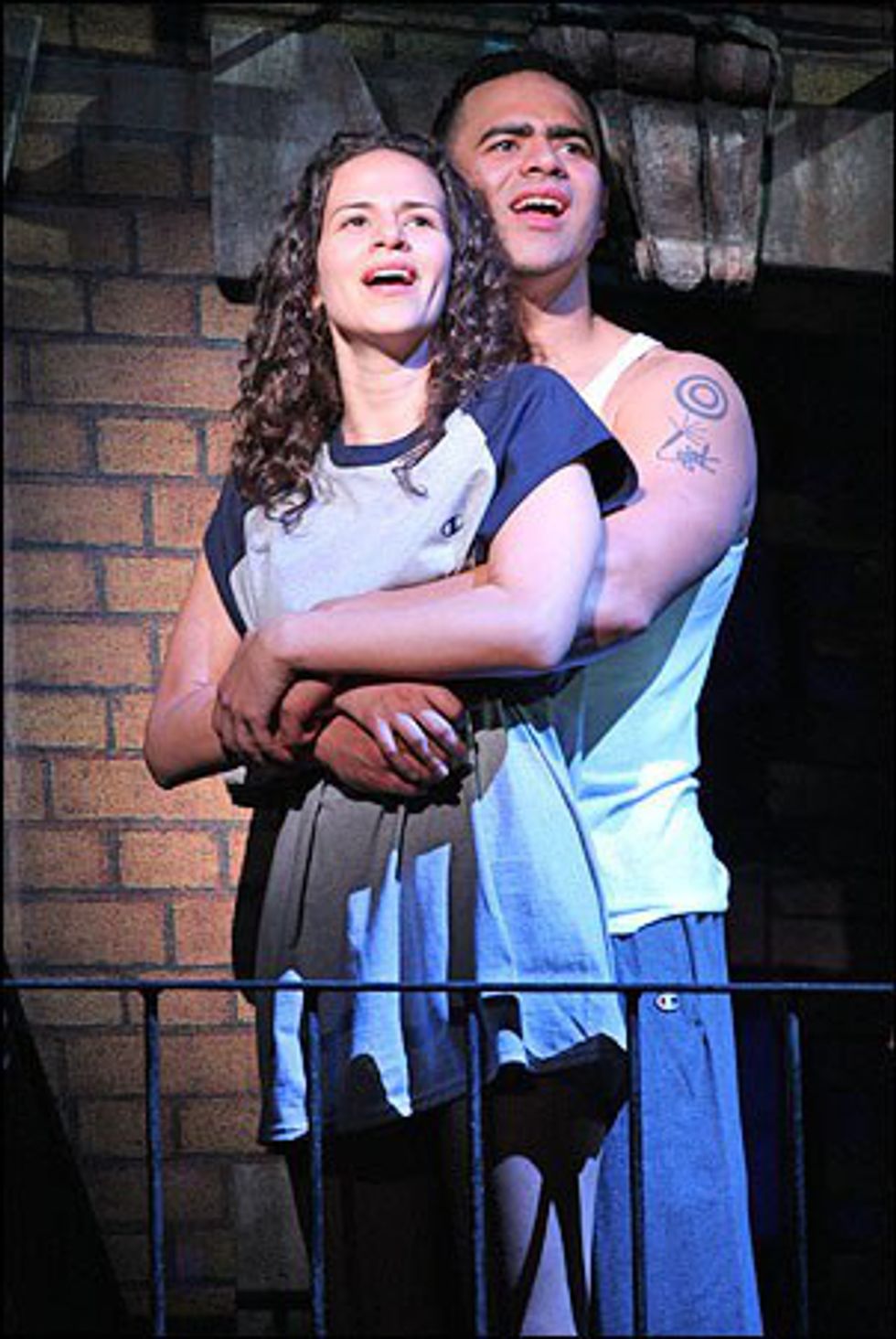
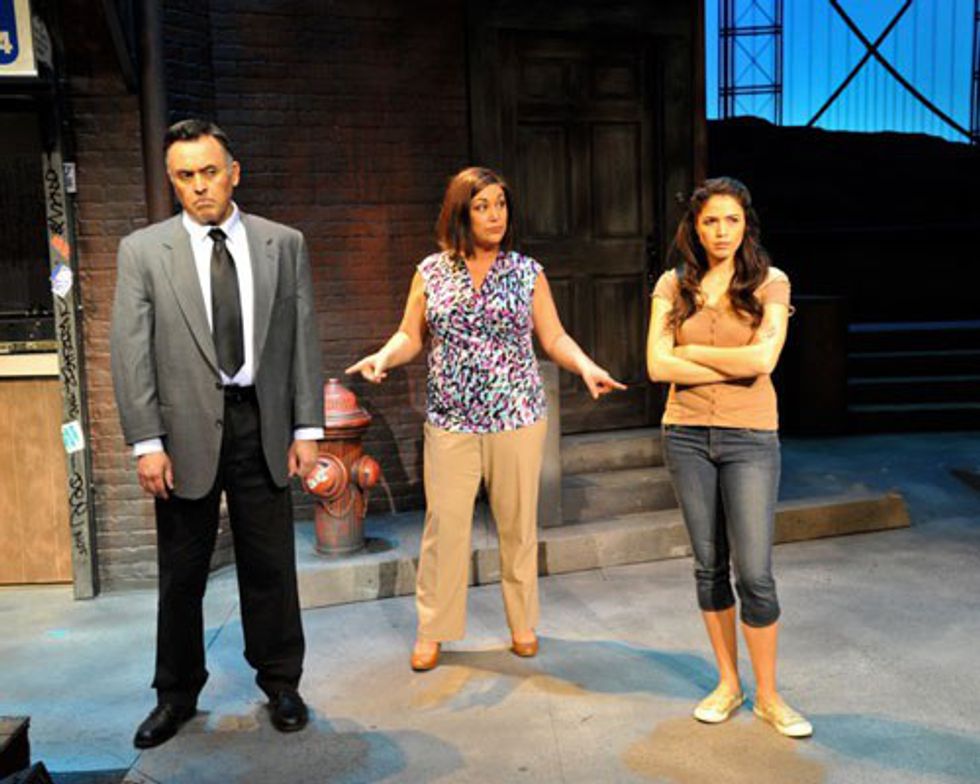
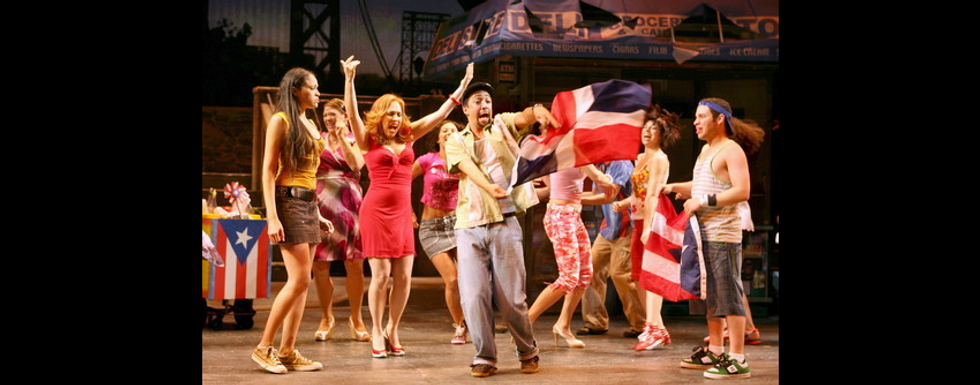
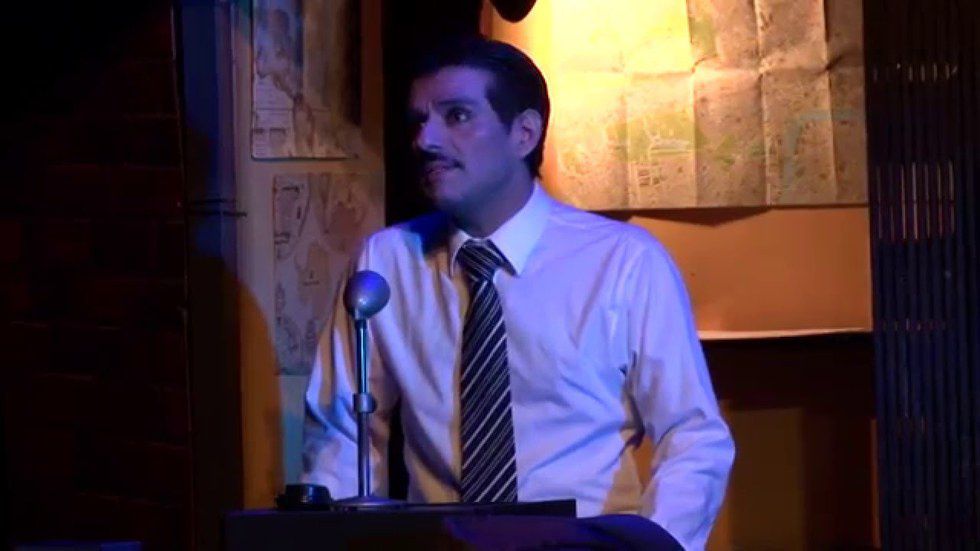
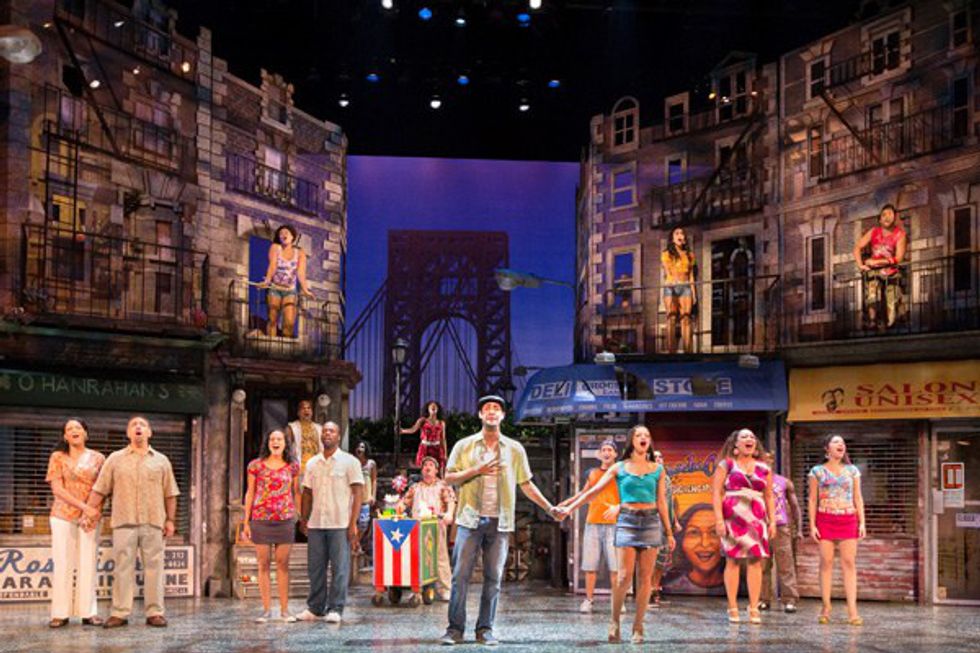
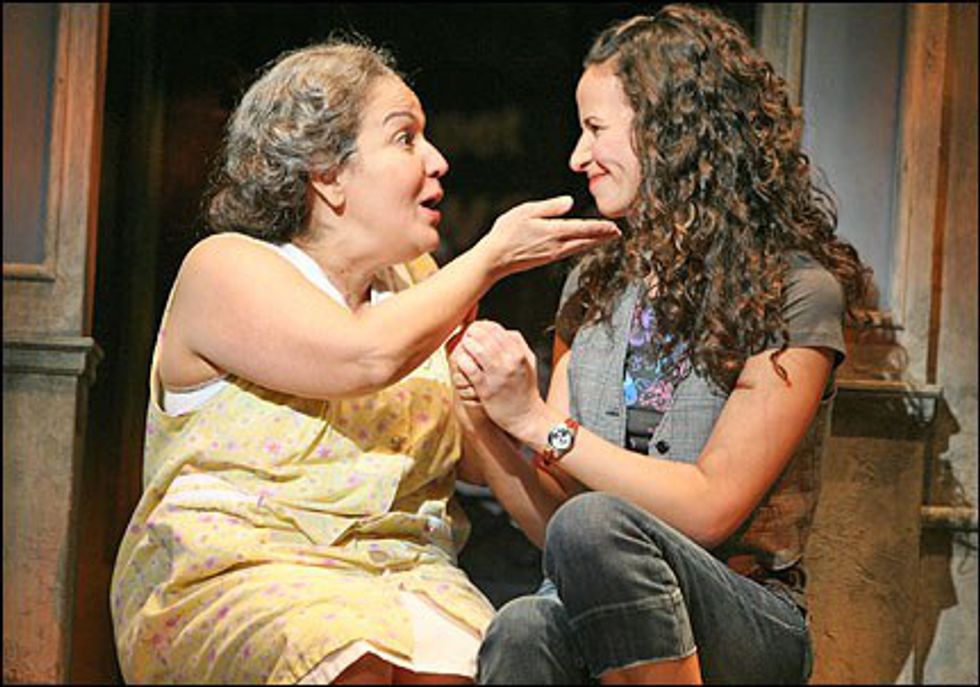
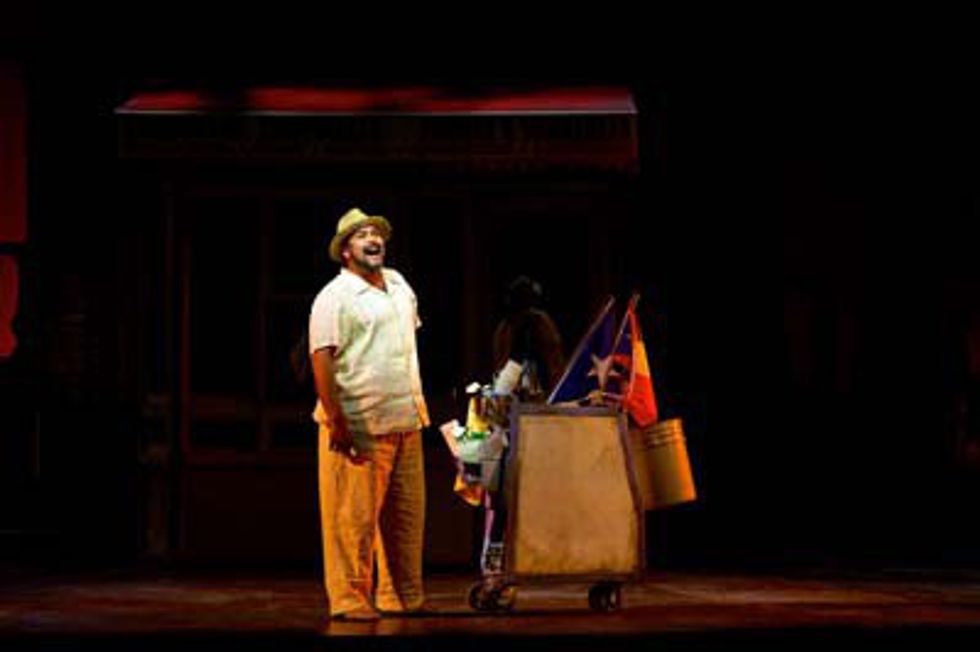

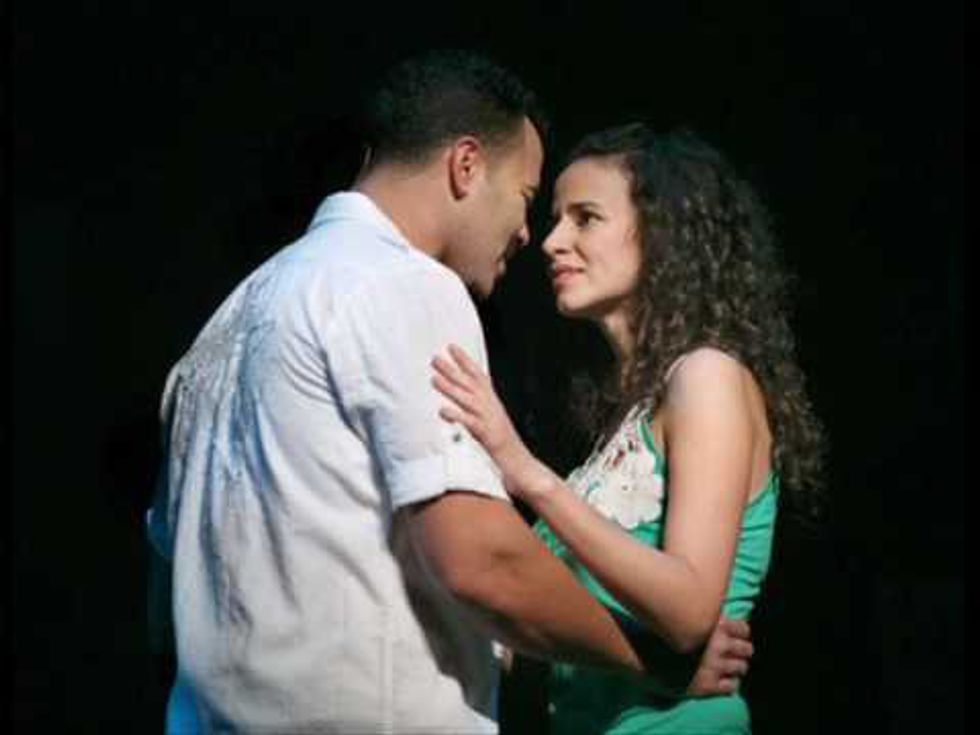
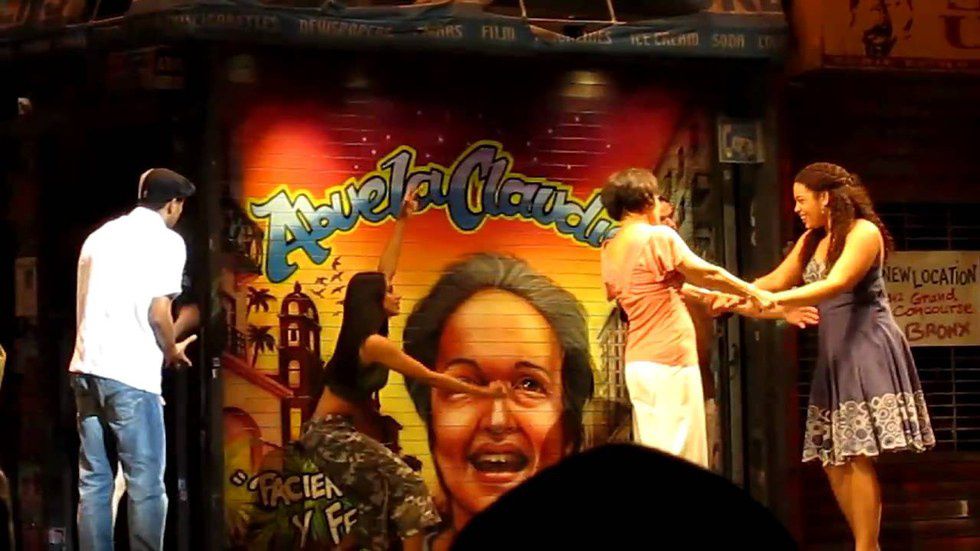


 Energetic dance performance under the spotlight.
Energetic dance performance under the spotlight. Taylor Swift in a purple coat, captivating the crowd on stage.
Taylor Swift in a purple coat, captivating the crowd on stage. Taylor Swift shines on stage in a sparkling outfit and boots.
Taylor Swift shines on stage in a sparkling outfit and boots. Taylor Swift and Phoebe Bridgers sharing a joyful duet on stage.
Taylor Swift and Phoebe Bridgers sharing a joyful duet on stage.












